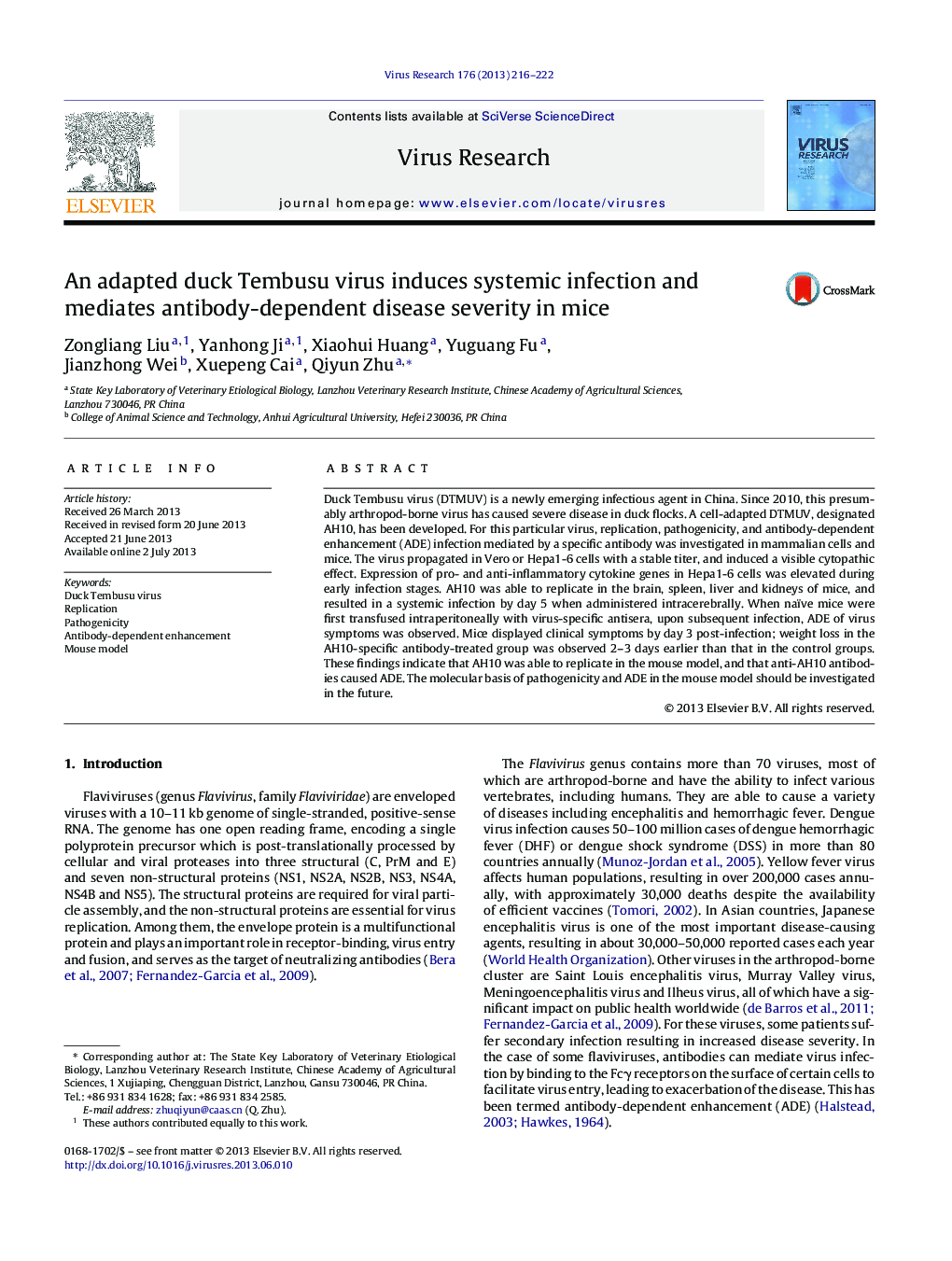| کد مقاله | کد نشریه | سال انتشار | مقاله انگلیسی | نسخه تمام متن |
|---|---|---|---|---|
| 6142988 | 1594379 | 2013 | 7 صفحه PDF | دانلود رایگان |
عنوان انگلیسی مقاله ISI
An adapted duck Tembusu virus induces systemic infection and mediates antibody-dependent disease severity in mice
دانلود مقاله + سفارش ترجمه
دانلود مقاله ISI انگلیسی
رایگان برای ایرانیان
کلمات کلیدی
موضوعات مرتبط
علوم زیستی و بیوفناوری
ایمنی شناسی و میکروب شناسی
ویروس شناسی
پیش نمایش صفحه اول مقاله

چکیده انگلیسی
Duck Tembusu virus (DTMUV) is a newly emerging infectious agent in China. Since 2010, this presumably arthropod-borne virus has caused severe disease in duck flocks. A cell-adapted DTMUV, designated AH10, has been developed. For this particular virus, replication, pathogenicity, and antibody-dependent enhancement (ADE) infection mediated by a specific antibody was investigated in mammalian cells and mice. The virus propagated in Vero or Hepa1-6 cells with a stable titer, and induced a visible cytopathic effect. Expression of pro- and anti-inflammatory cytokine genes in Hepa1-6 cells was elevated during early infection stages. AH10 was able to replicate in the brain, spleen, liver and kidneys of mice, and resulted in a systemic infection by day 5 when administered intracerebrally. When naïve mice were first transfused intraperitoneally with virus-specific antisera, upon subsequent infection, ADE of virus symptoms was observed. Mice displayed clinical symptoms by day 3 post-infection; weight loss in the AH10-specific antibody-treated group was observed 2-3 days earlier than that in the control groups. These findings indicate that AH10 was able to replicate in the mouse model, and that anti-AH10 antibodies caused ADE. The molecular basis of pathogenicity and ADE in the mouse model should be investigated in the future.
ناشر
Database: Elsevier - ScienceDirect (ساینس دایرکت)
Journal: Virus Research - Volume 176, Issues 1â2, September 2013, Pages 216-222
Journal: Virus Research - Volume 176, Issues 1â2, September 2013, Pages 216-222
نویسندگان
Zongliang Liu, Yanhong Ji, Xiaohui Huang, Yuguang Fu, Jianzhong Wei, Xuepeng Cai, Qiyun Zhu,